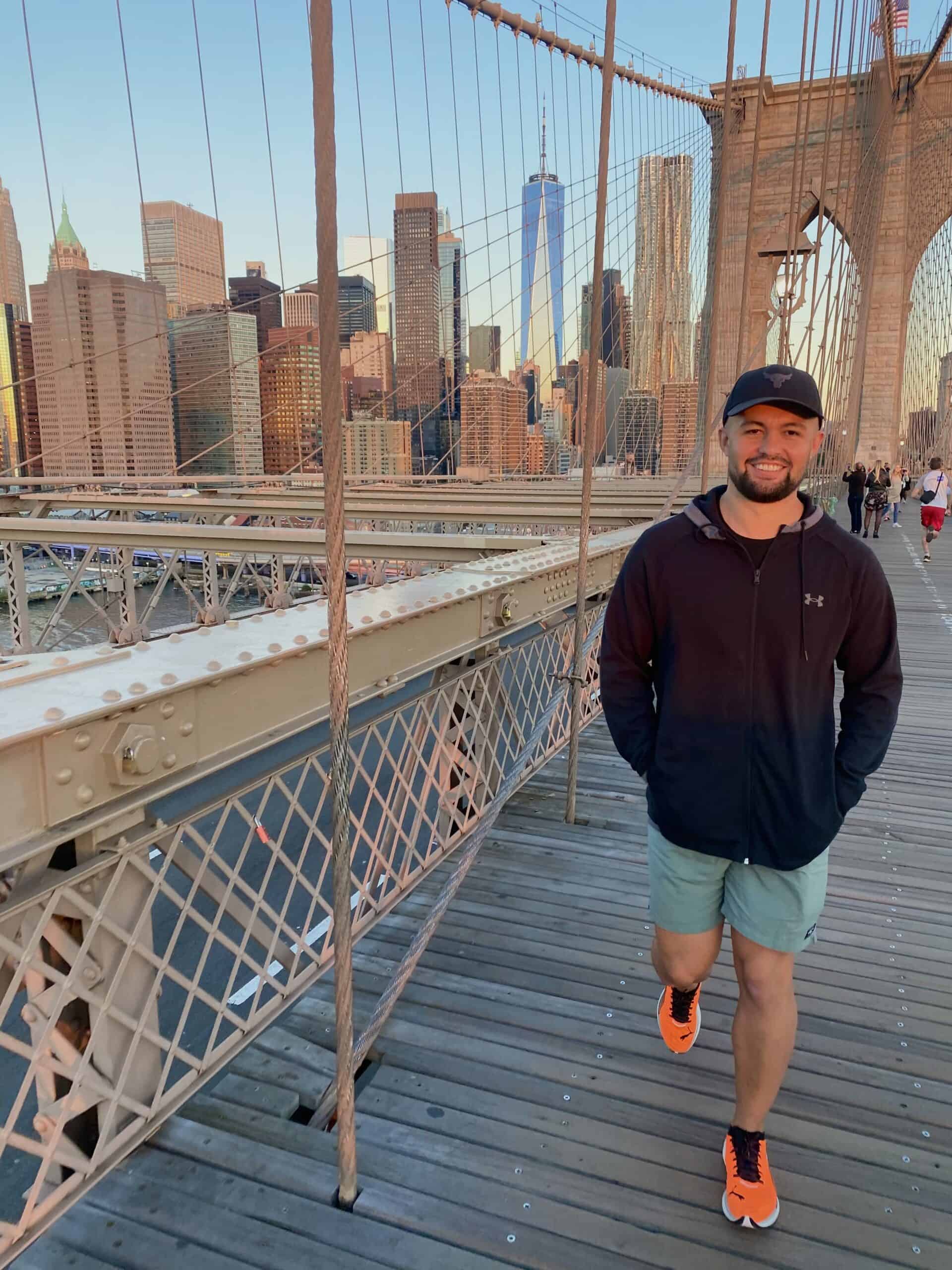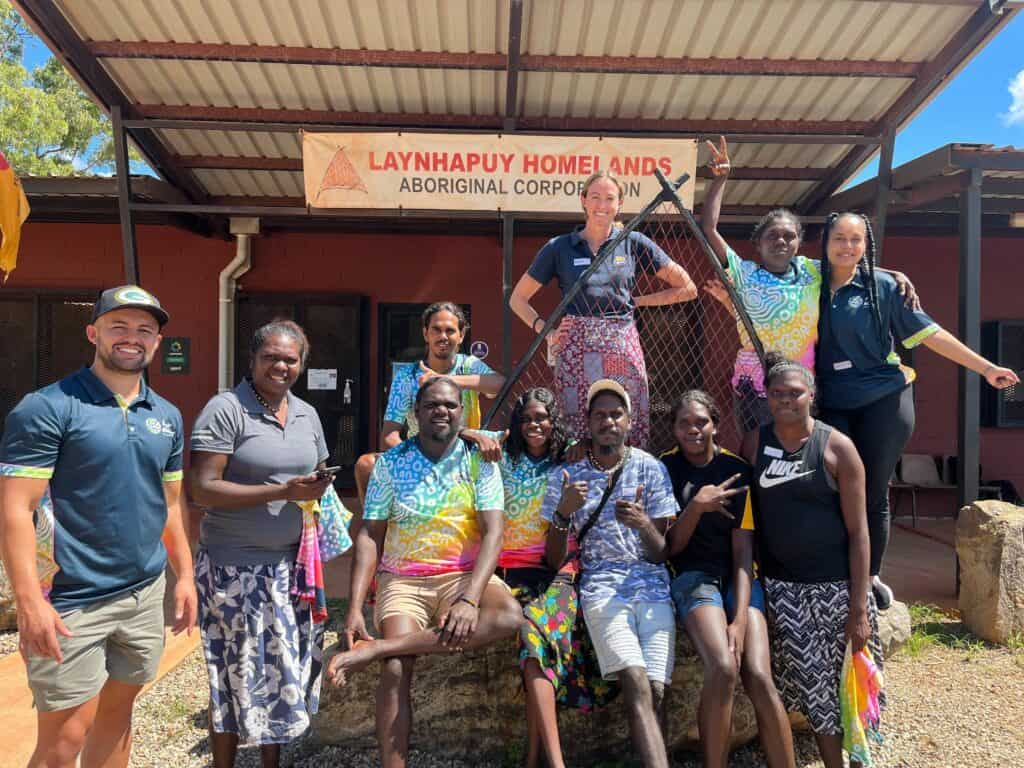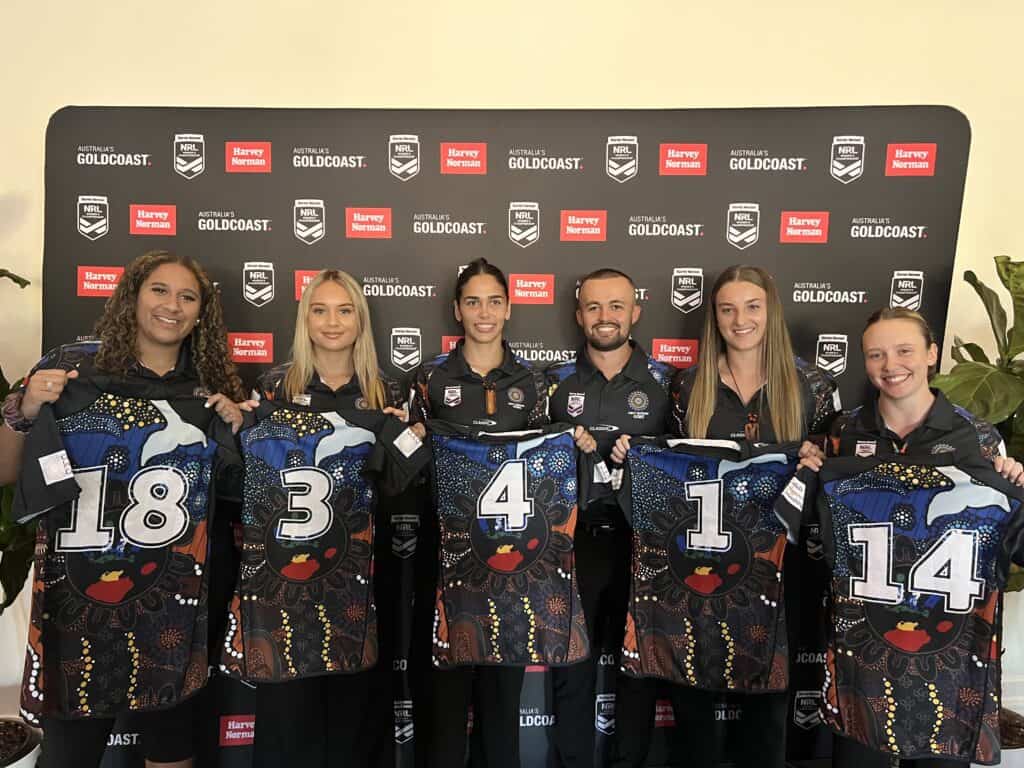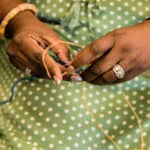A balancing act
Cassandra Baldini
- Career & Business, Home Ownership, Money Lessons, Study & Career

From the outset, Jordy Dwyer, education and partnerships manager at First Nations Foundation (FNF), felt called to mentor young Indigenous Australians, helping them carve out their own paths to success. Reinforcing the importance of practising what you preach, he explains that instilling boundaries in both his personal life and career has greatly assisted him.
Growing up in Manildra, a regional town in the Central West of New South Wales nestled between Orange and Parkes, Jordy reflects on the pivotal moment he was selected to attend St Greg’s Campbelltown boarding school through a scholarship program.
“When you look back on pivotal moments, one of the biggest for me was going to boarding school,” he explains.
“Growing up, I wasn’t unintelligent, but I wasn’t getting the best out of myself. Moving to boarding school, I started to learn about daily discipline. It was also an environment where I felt I belonged and where people genuinely cared about me. That was really important.”
Raising his own expectations and being surrounded by like-minded, driven individuals helped steer Jordy onto his path of mentoring others.
“Working with kids was born out of my time at boarding school. I wanted to do something to help people. Seeing other young Aboriginal and Torres Strait Islander kids coming from small towns all over Australia really helped me get out of my own head and set me on that path.”
‘It’s really hard to talk about money when you’ve got none’
Upon starting his journey at FNF, he was ready for a new challenge but didn’t fully understand how greatly it would impact his life.
“Working in finance has been really eye-opening for me, and I’ve learnt a lot of lessons that I’ve also been able to pass on to my family. It got me thinking about my long-term financial goals and I started to become more conscious about money.”

Looking back, Jordy explains that he had not always prioritised his own financial well-being. “It’s probably a pretty common story. When you don’t come from much and you start earning money, you’re always thinking about buying things you might have missed out on or didn’t get an opportunity to have when you were younger. You feel like you have the freedom to do what you want, so you get a bit reckless with your spending,” he says.
“I think a lot of young people probably go through that, but certainly for me, there wasn’t much consideration of what would go past that fortnightly pay cycle.”
At that time, pursuits like saving for a home didn’t feel like immediate priorities for Jordy and it’s no surprise that young people in today’s economy might also feel such dreams are distant.
“I always use the saying, ‘It’s really hard to talk about money when you’ve got none’,” he adds, underscoring that young people can feel a sense of lack and adopt a scarcity mindset, especially if they don’t feel like they have anyone to fall back on.
However, he makes it clear that certain boundaries and habits, if put in place, can ensure one’s own safety net.
“Don’t try to please everyone. If you don’t have the cash, as much as you’d like to go and spend money on certain things, you just need to know where your limitations are. I think it’s really important.”
Beyond that, Jordy says we all need to learn our own lessons.
“I think we spend a lot of time trying to protect everyone and stop making mistakes. But at the end of the day, you can be guided, but if you’re overspending and that starts to cause you issues, life will smack you in the face and make you wake up.”
In addition to his work at FNF, Jordy coaches the Currumbin Eagles women’s rugby league team and explains that to lead effectively, boundaries must be set both on and off the field.
“Anytime we’re leading a team, whether it’s in sport or business, the important part is that people know you care about them, first and foremost. But you can only show that by taking care of yourself.
“I’ve made that commitment to be there for the girls, and I expect them to do the same, so you’ve got to have those boundaries and lead from the front.”

Setting clear boundaries
Having non-negotiable standards, setting expectations and prioritising yourself are ways to create success. However, Jordy admits he knows how important it is to support and look after community. “For many of us within our own communities, we feel a responsibility to look after the people we love. I’m a generous person by nature, so I’m happy to give, but I’ve been caught out lending money when I shouldn’t have,” he says.
“That’s really forced me to think and I’m certainly nowhere near as willing to do that anymore without clear boundaries. I’m getting stronger as I get older and I hold myself accountable, so I feel that by meeting my own expectations, I can expect the same from others.”
Being in his early thirties, Jordy says it’s still important to enjoy life, but to know your limits.
“I live well below my means now and have a clear focus on what I’m comfortable spending money on versus what I really don’t need,” he says.
“For me, it’s health, it’s an absolute non-negotiable for me. If I don’t feel healthy physically and push my capabilities then it affects all aspects of my life. I’m happy to spend money on gym memberships and getting treatment on my body, for example, as well as finding peace in socialising. But I’m not going out every weekend spending everything I have and being reckless. Be clear about what’s important to you.”
On the way to pursuing your goals, there will always be fixed expenses—maybe it’s a phone bill, fuel for the car, or the weekly grocery shop—Jordy advises knowing what’s important and working backwards.
“The question is, what are you happy to spend money on? There is no point saying, ‘Don’t spend money on this, don’t spend money on that’,” he says.
“Find what’s important to you, what’s critical to your well-being, understand what is fixed—everyone’s got to eat—and then, work backwards. There’s no point being flush with cash if you’re unhappy either. It’s always a balancing act.”
Let us know if you liked this article
Let us know if you liked this article




